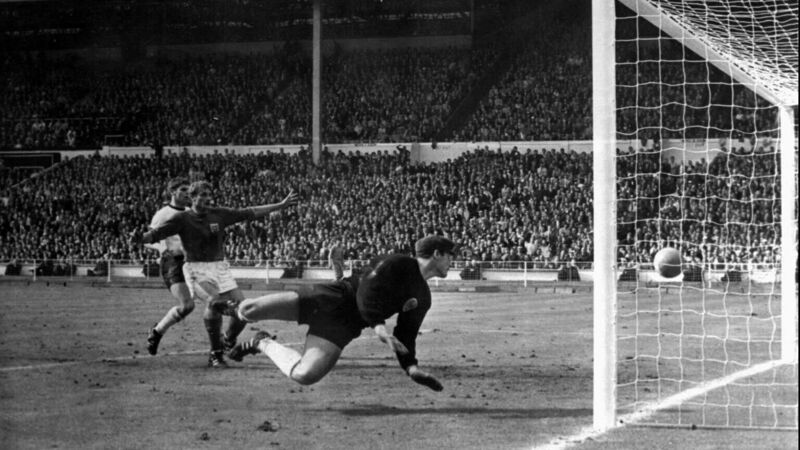Michael Moynihan: Unlocking the gold in black and white

What would moments like England's controversial third goal scored by Geoff Hurst in the 1966 World Cup final look like with the help of modern technology?
One of the big cultural events of the last few months has to be the Beatles documentary series, , which has been (rightly) lauded for what it revealed about the music group — their relationships, their creative process, their appetite for well-buttered toast.









